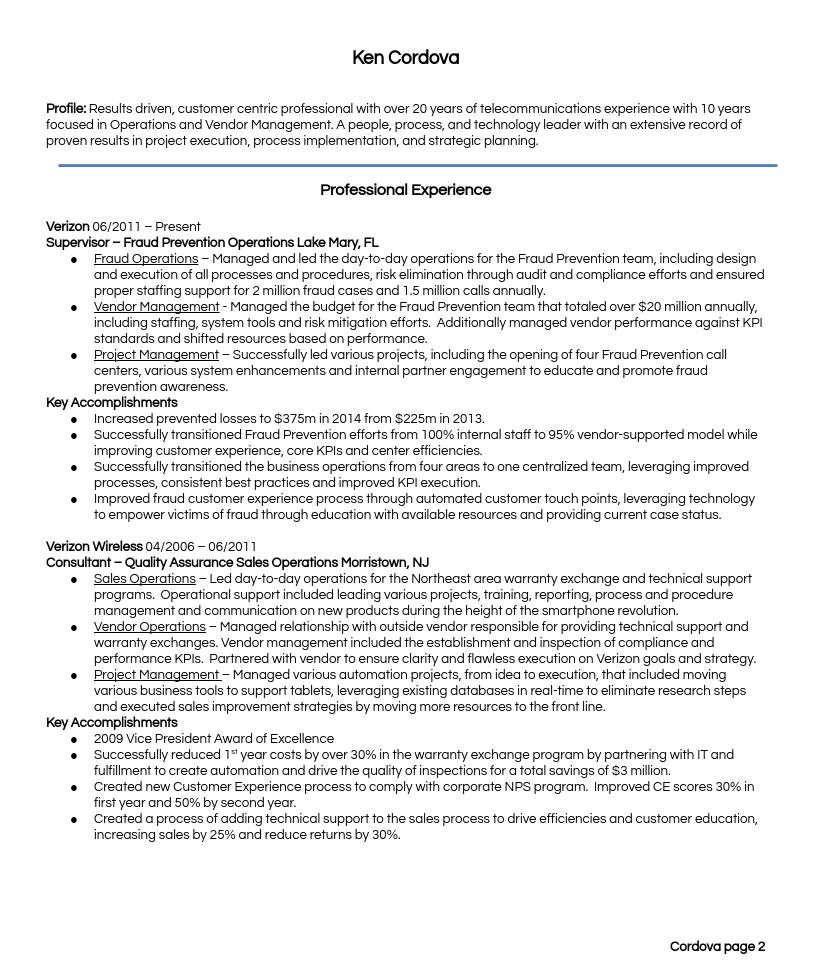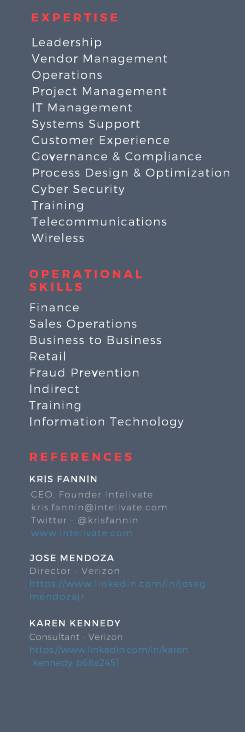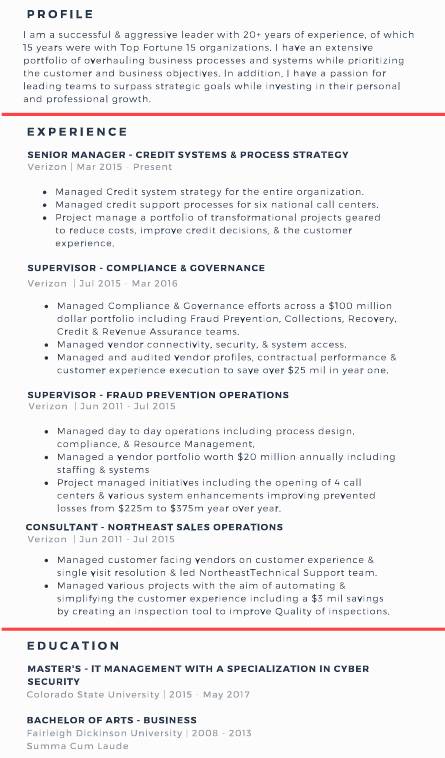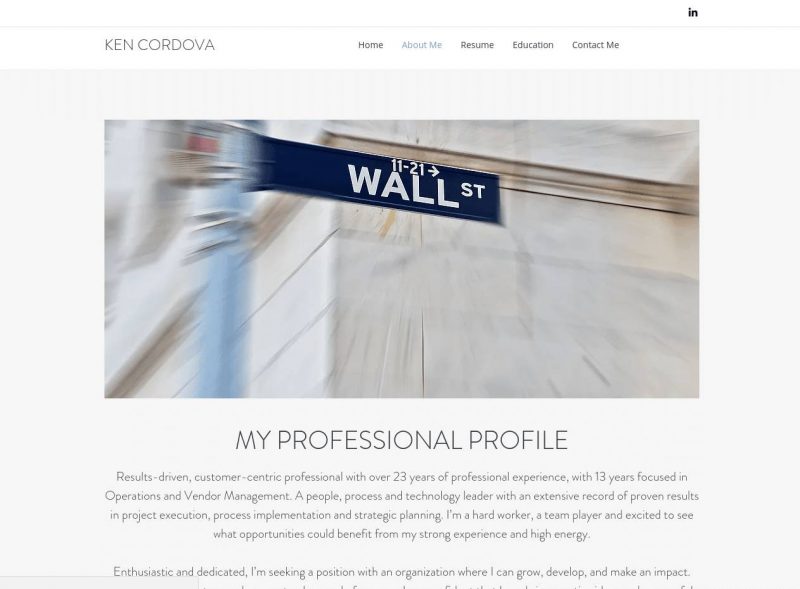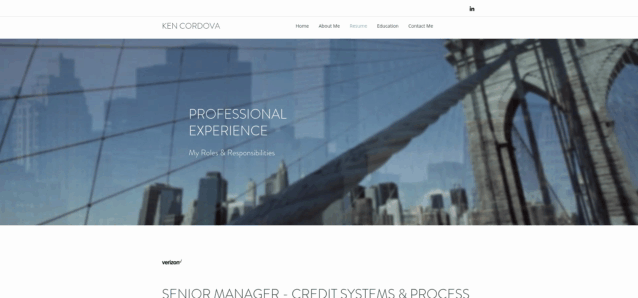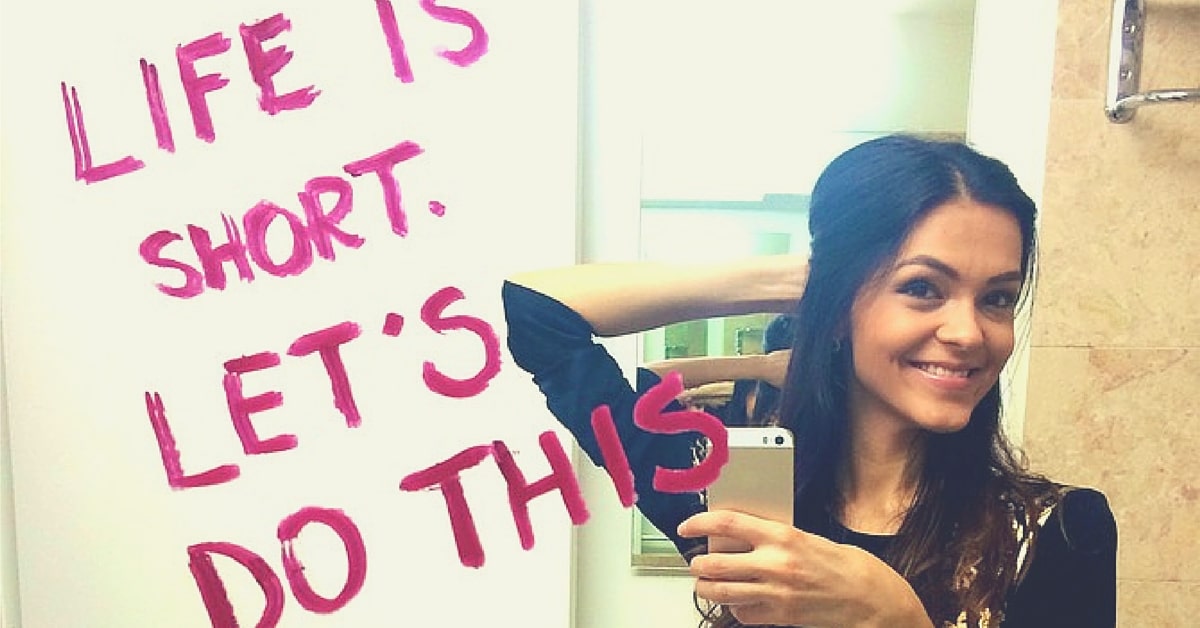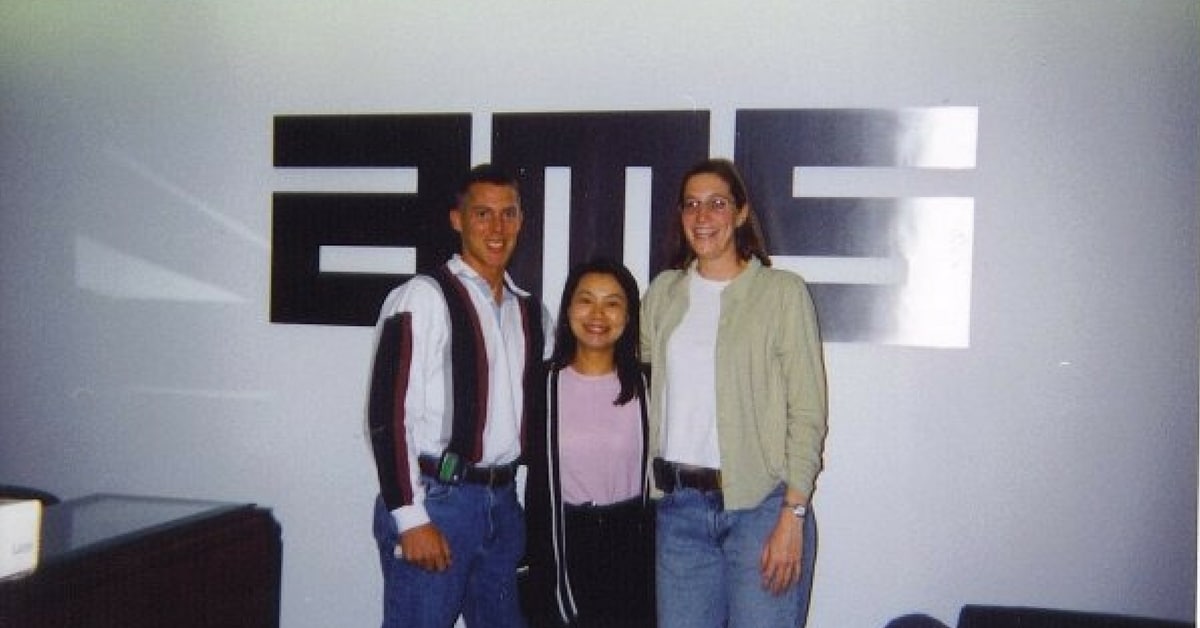Need a resume makeover? See the before and after of a resume transformation. You’ll get everything you need to build a model resume to win the interview. Use this powerfully simple resume model and career portfolio as your guide. We’ll walk you through step-by-step.
The days of slapping together a resume and getting results long gone. The days of just having a resume are pretty much over as well.
Meet Ken Cordova. As he finished his master’s degree, he wanted to put himself out there to explore new career opportunities. His problem? His resume.
Here’s his resume before:
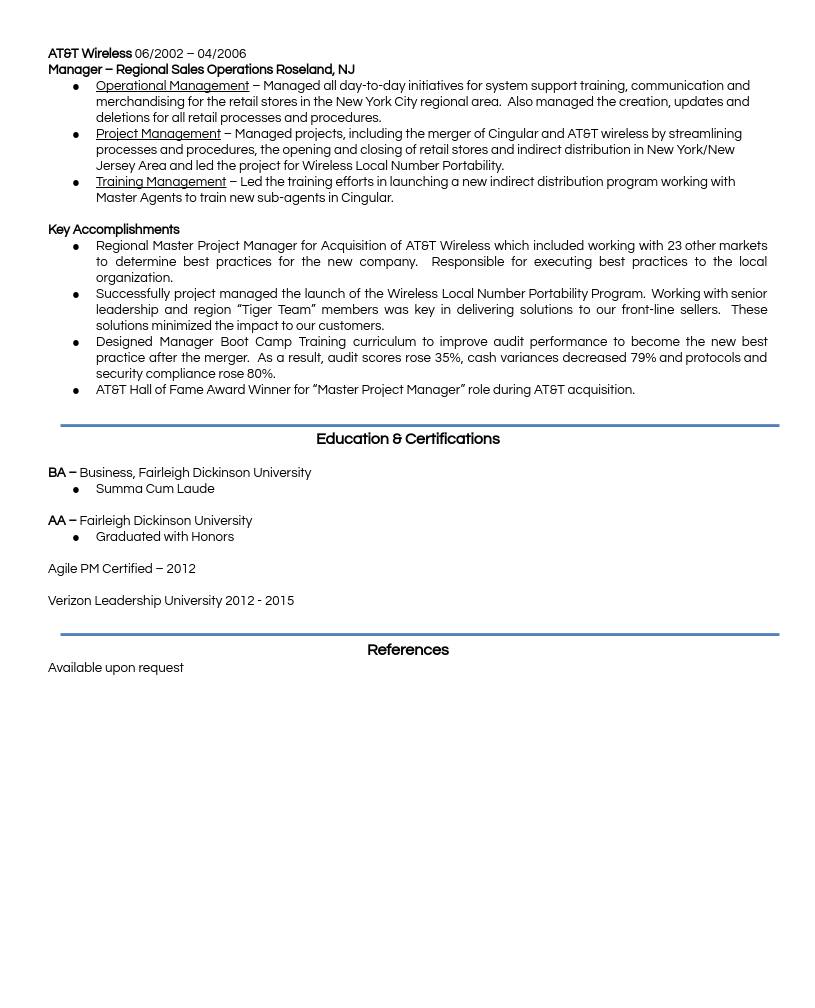
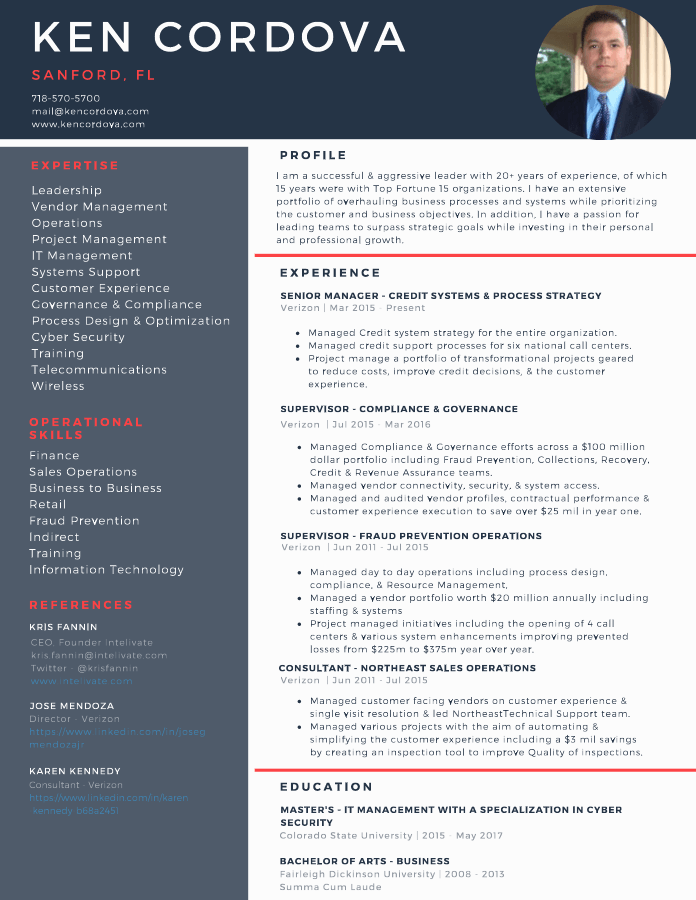
Ken supplemented his resume with a great career portfolio. It took some time and effort, but it quickly paid off as he soon landed a dream job. In fact, he turned down interviews at one point.
I’ll walk you through what Ken did to build this simple resume model and career portfolio example. As I always say, simple is hard. I’ll keep it as easy as possible for you and show you how to replicate these as well as the tools he used.
Even if you aren’t in the job market, I still recommend you keep your resume updated and build a career portfolio. At some point, you’ll likely need both. Don’t wait until that time to start frantically building them.
Let’s do this!
Components of a Powerfully Simple Resume Model
Recruiters and hiring managers are scan readers. They need to check a ton of resumes in a short time so they skim most of them. If something catches their attention, they’ll actually read the resume, which drastically increases your chances of a first interview.
The resume keywords and content are important but scannability is critical. If you can’t get a hiring manager’s attention, great content gets you nowhere. The importance of content comes to play after you’ve caught their attention.
So what do you do? Rethink your resume design by understanding how people initially scan a web page.
Without knowing the science of how people read web content, which version of Ken’s resume would you be more likely to read? Remember, you have hundreds of resumes to go through in a short period.
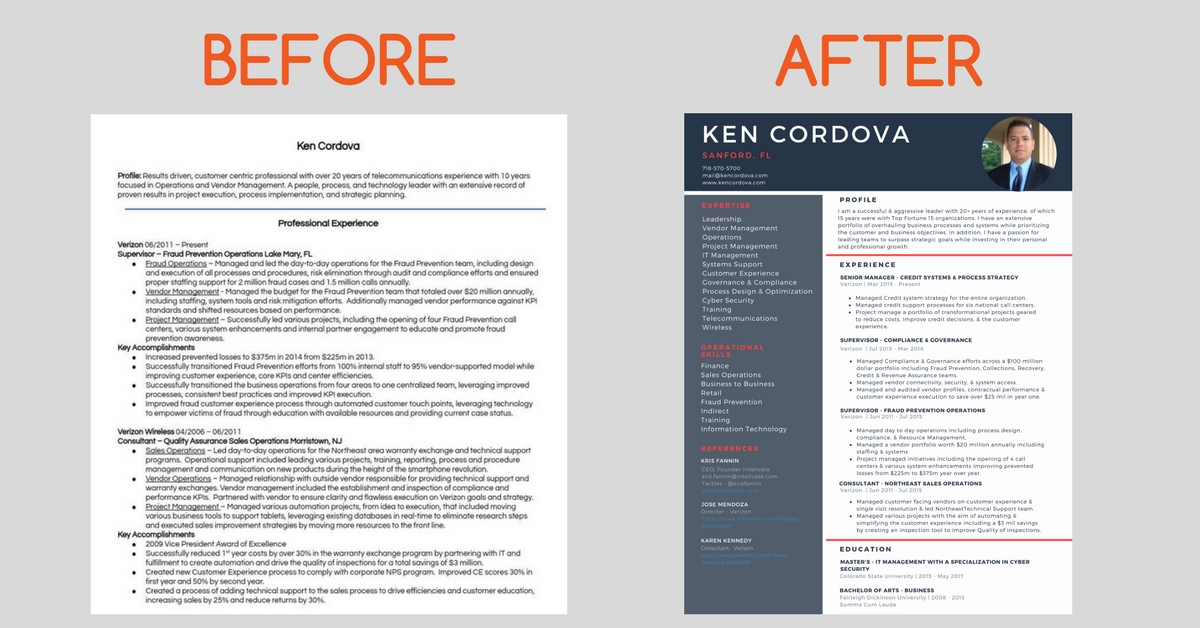
Not only is the new, simple resume more visually appealing, it’s also easier to scan. Here’s the science behind it.
You can download Ken’s resume model and example in PDF format here.
Content is organized in an ‘F’ formation.
Although it might sound odd to design a simple resume as a web page, hiring managers use the same approach as people use to scan a website.
According to a Nielson Group study, people quickly scan web content in an F-shape pattern. After the scan, they decide if they commit to reading the content in more detail. Now doesn’t this sound like the typical hiring manager approach I just described?
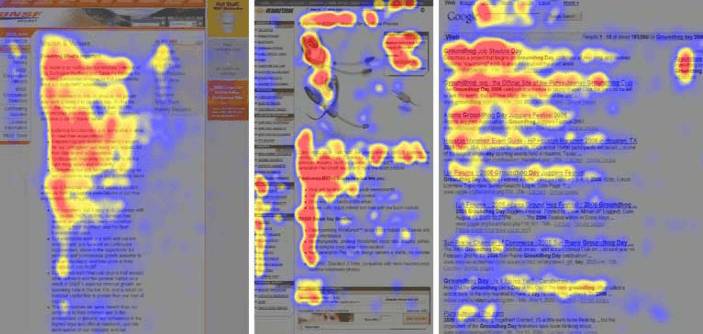
The GIF image below simulates for you a hiring manager quickly flipping through resumes.
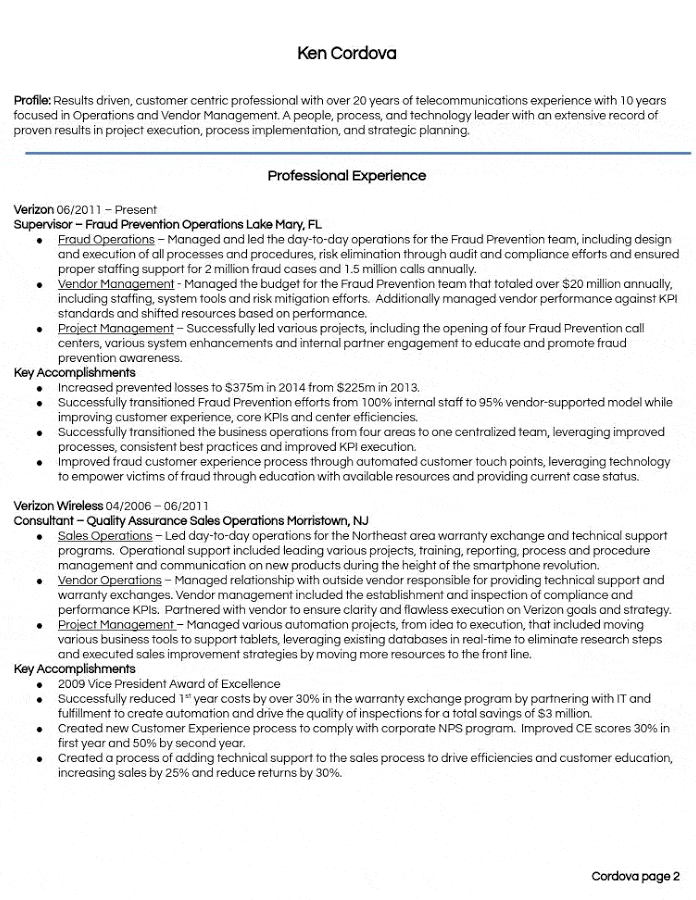
Visually, which one is most appealing and stands out most?
Ken’s simple resume is easy to scan.
As you design your resume, make it easy to scan. Ken’s resume is easy to scan and digest the content. Given the ‘F’ pattern, here is how a typical person scan’s his resume:
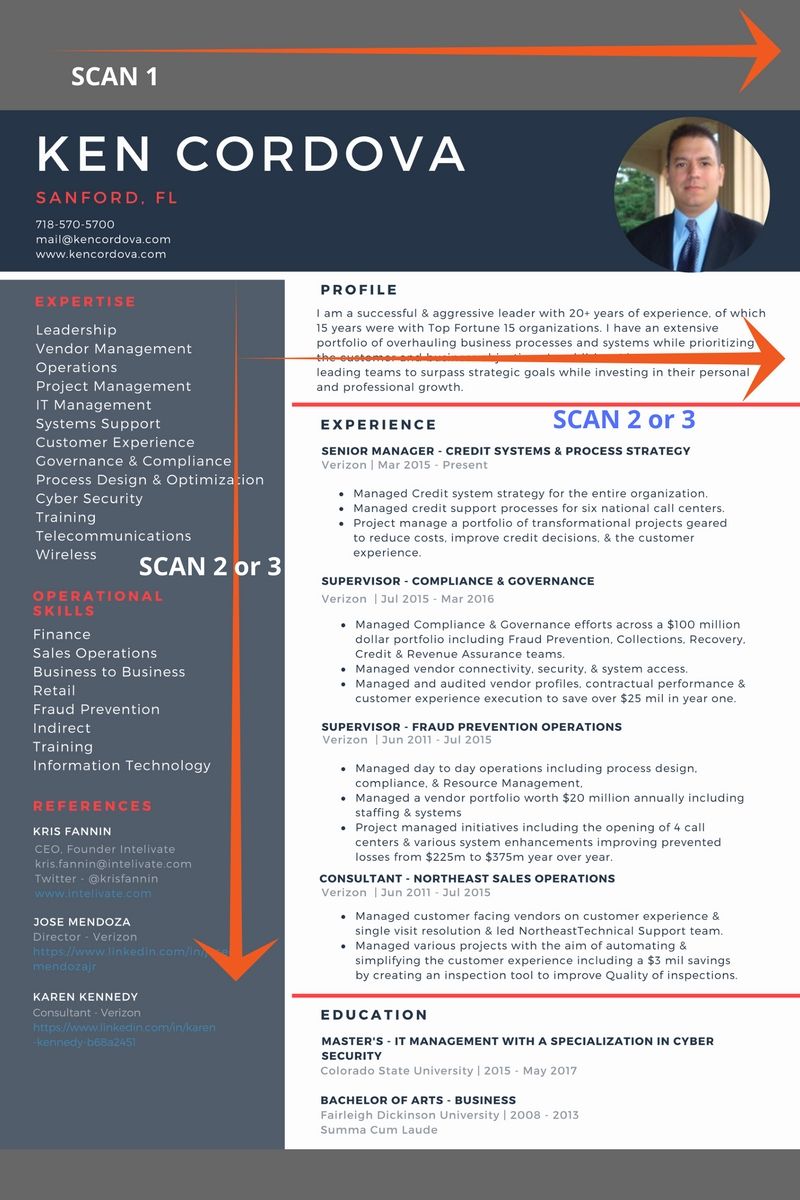
Scan 1
The first scan is likely to go from left-to-right. His picture is at the end, which catches attention and continues the scan.
You might try putting a headline with this first scan as well. Keep this section as simple as possible as to not overwhelm the reader.
Scan 2
Scan 2 and 3 can go either way. Likely, there is a slight scan down to the left and then off to the right. That second scan catches keywords such as:
- Expertise
- Leadership
- Successful
- Leader
- 20+ years
- Experience
If you were hiring someone for a leadership position, wouldn’t you want to keep reading after quickly scanning those words?
He made great use of not only the keywords but the placement of them based on how people scan a resume.
Scan 3
Depending on where scan 2 started, the third scan is slower (especially based on the resume keywords and placement). This is where commitment to finish reading his resume happens.
Visually organized resume content.
Ken’s more simple resume is visually organized. This makes the content easier to read and digest. Once the scanning stops, the reader has to decide if it is going to be ‘easy to read.’
This resume model is organized into three sections.
Resume header
Much like a website header, this resume header gives a visual sign of order and a quick overview. The picture is a powerful way for someone to put a person to the page.
Resume sidebar
Ken’s resume model makes effective use of a sidebar that is visually separated by the background color. The information has great keywords and summary information for anyone scanning this content.
He further separates the content into sections with headers. Easy to scan and easy to digest.
Main resume content
Ken separates the main content with a white background. He further organizes content with separators. Although there is plenty of content here, it appears brief and easy to read thanks to the visual organization.
Ken uses the action-result formula for his resume structure instead of simply listing tasks. He quickly tells a story of the value he brings to the business.
Tools & resources to build this simple resume.
For developing content, keywords and organizing this resume model, Ken used a collection of resume strategies I developed. He also didn’t rush it. He took his time and went through each part thoroughly.
As a part of the toolkit, Ken discovered hundreds of templates at Canva. He used a combination of the pre-designed templates. The service and templates are free.
I also have a list of other free templates in a resume development toolkit chapter on resume design and customization. I list lots of options there!
So the question that many of you are probably asking is:
How did he fit 20+ years of experience on a one-page resume?
He didn’t and you don’t need to either. Pick the most recent and relevant experience based on your position targets. Ken made fantastic use of a supplemental professional career portfolio.
Here’s how he did it and why you should do it too.
Career and Professional Portfolio Example.
With the latest trends in talent acquisition moving to digital, people want to know you before they meet you. The first thing people will do is Google you. Make sure they immediately find the right information.
What is a career portfolio?
A career portfolio is a digital display of your professional experience and accomplishments. Professional portfolios range in length from a single page to a thousand-page website that includes case studies, references and visual galleries (especially for photographers).
Most people hear ‘website’ and think ‘I
‘I can’t do that.’
It’s not difficult. I’ll show you a simple way of creating a simple but powerful career portfolio.
Why is a career portfolio important when looking for work?
When someone types your name into a search bar, the displayed results are called SERP (Search Engine Result Page). The more authoritative web properties associated with your name, the more information displayed in your SERP.
Here is the SERP for Kris Fannin as an example:
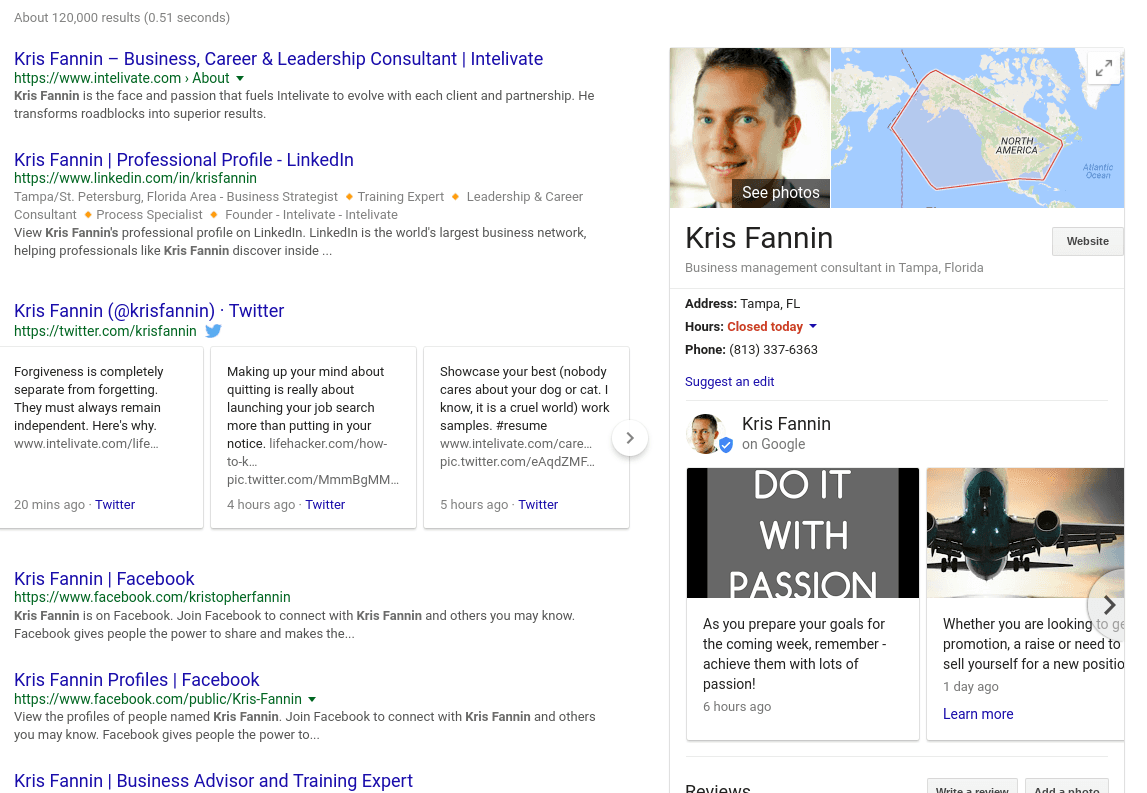
Why does your SERP matter? Because I guarantee people will search for you while looking for work. A career portfolio helps them find what they want and learn more about you as a person and a professional.
Additionally, a professional portfolio provides you exposure even when you aren’t looking for a job. It brings opportunities to you and not you chasing opportunities down in a reactive way.
Sections of a career portfolio
Career portfolios are not just a copy and paste of your resume, although they should contain your resume.
Ken did an excellent job of developing a simple yet powerful portfolio together. He used the Wix platform for building and hosting his site. The current version of Ken’s portfolio can be found here. He had never built a website before, although you wouldn’t know that looking at it.
At the end of this section, I’ll give you some other options to build yours. Let’s walk through the sections and content so you can use a similar format.
Career portfolio ‘Home’ and introduction page
Use this section to give a brief introduction and catch their attention. Be professional and personable.
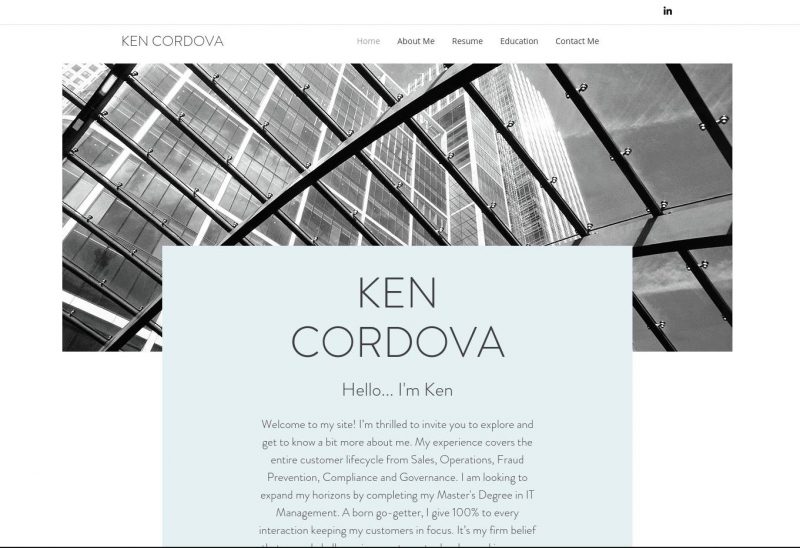
Just under the introduction, Ken provides a CTA (Call to Action) to learn more about him. Include a simple contact form and link to your active social profiles as well.
Career portfolio ‘About Me’ – be human.
This is an area to let people know the value you bring as a professional. Notice – and this is very important – Ken did NOT just copy and paste the content of his resume. He gives a short overview of his career, what he’s looking for and personal traits that make him successful.
He has another CTA that invites the user to explore his resume.
He includes some personal information below, which I highly recommend. Why? Hiring managers are assessing an organizational culture fit. They want to know more than your skills and experience. They want to know you as a person.
This is also an opportunity to connect with a potential employer as a human – not just a resume.
Seriously? How could you NOT start to like Ken after seeing and reading this?
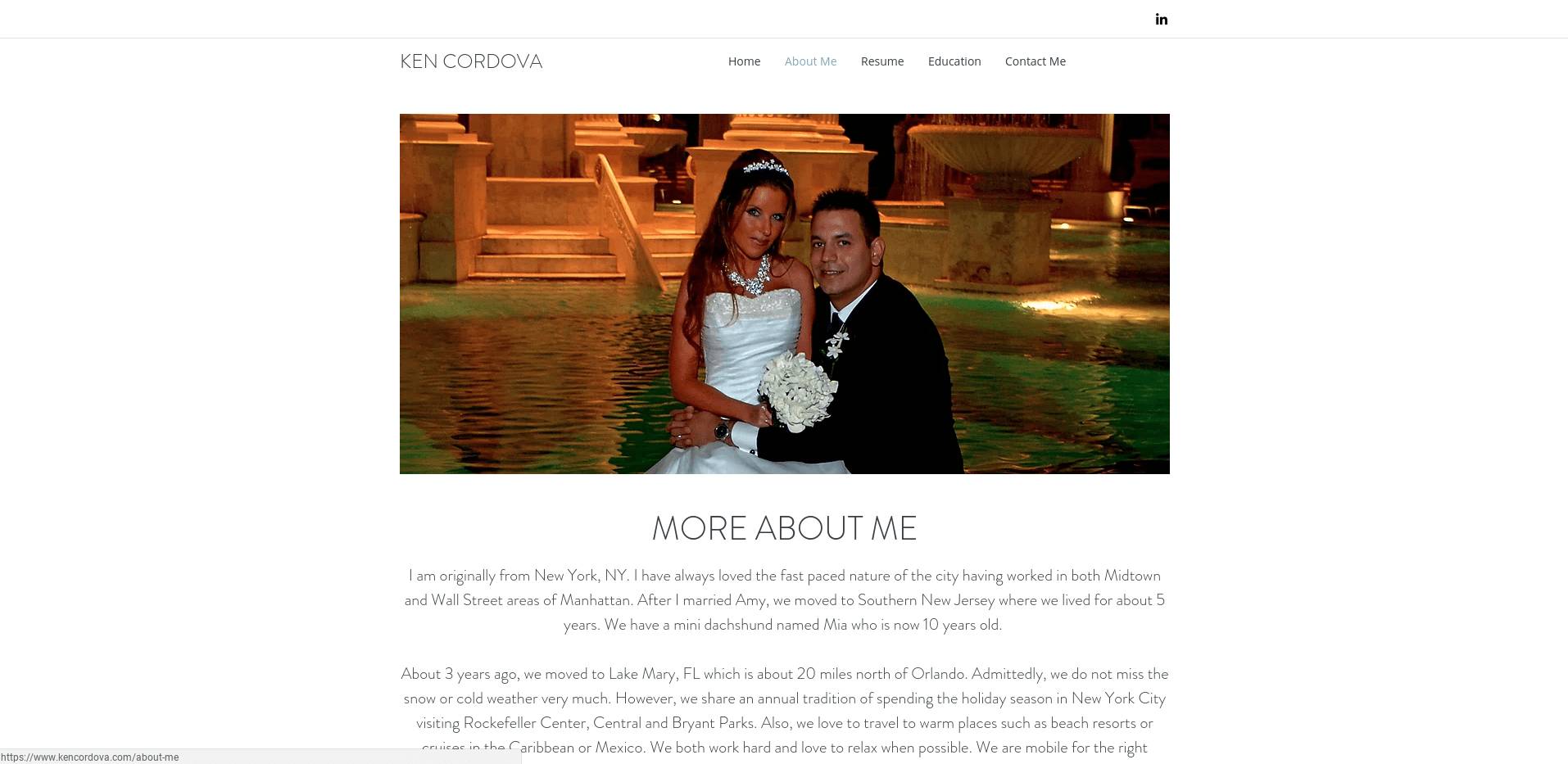
Career portfolio ‘Resume’ and ‘Skills’ sections
Ken broke these into two different pages, and there is a reason.
First, he has a page with his resume content. Notice, it is not exactly the same as his actual resume which is key. Be slightly more descriptive.
He also added a video background to the header of the page. Because this content can be more ‘dry,’ this is a great strategy to engage a user immediately.
He then takes it a step further by adding a ‘Skills’ page. Why did he separate the two? Because he made it conversational. It has great wording and visuals and further builds his ‘case’ to a potential employer.
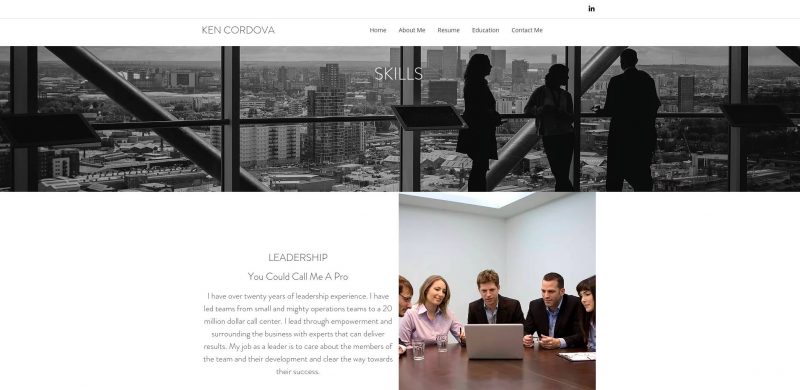
Career portfolio ‘Education’ and ‘Contact’ sections
Although rather straightforward, these are important sections for a professional portfolio. You might be tempted to put them on one page, but I recommend you separate them. Separate sections allow you to go into more detail.
Additional sections to consider for your career portfolio.
Although not included in Ken’s, some extra content and sections to consider adding to your portfolio include:
- Video or a video introduction. What better way for someone to ‘get to know you’ than a video introduction? If you decide to include one, I would put it on the first page. These aren’t difficult to make. Just dress professionally and fire up your webcam.
- FAQ section. What questions do potential employers ask you? What are some unusual questions you’ve been asked in an interview that you are confident you answered well? Include them in an FAQ section! You could also answer each question on video. Take a look at Intelivate’s FAQ section for ideas on how to organize them.
Alternatives to a dedicated website.
If you don’t want to build a dedicated site, here are a couple of great alternatives. All three have free and premium products.
Final Thoughts
You have just about everything you need to build a great, simple resume and career portfolio. I know it can be overwhelming, so take it one step at a time. Bookmark this and come back to it as you start each part.
Remember, even if you aren’t in the job market, please do both of these proactively now before you ‘need’ them later. At the least, you’ll open the door to new opportunities.
I know I gave you a lot of information here. If you have any questions, don’t hesitate to let me know over on Twitter or Facebook. I’d love to connect as well!
Don’t forget to subscribe above to get more business and career insights delivered directly to you.
Related solutions to help you with your resume and career portfolio.
Kris Fannin
Kris Fannin is a passionate change agent in workforce transformation. For more than 25 years, he's had the privilege of partnering with dozens of client organizations and leading hundreds of teams to become powerful influencers.
"Your legacy will be defined by the passion and impact of the people you influence. What do you want your legacy to be?"
